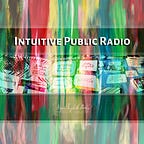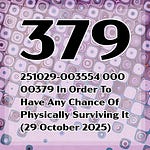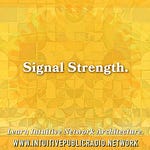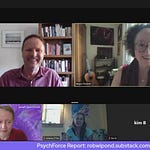Hello, Day 5.
Today I’m noting to colleagues — and to myself, especially — that the most powerful form of rescue relief support any of us can provide to survivors of the most invisible and violent of hardship intersections… is to be in relationship with them.
To engage with them conversationally with full respect for their personhood and authentic expressions.
To listen closely, learn from what they’re sharing, and respond with true care.
To build community together, learning more about one another, knowing one another better, and collaborating more fruitfully as our lives unfold forward into the future.
Sometimes, we are able to do a particular thing to directly address a situation a survivor is experiencing; we can certainly provide a form of care notation, even if we’re not able to write or type, just by listening with attunement and reflecting back their communications to ensure accurate understanding.
(This alone repairs many levels of relational and verbal neurological injuries, putting that survivor in a much-improved position to invent and implement solutions in their immediate circumstances.)
Sometimes, we are able to do more:
…If one has financial means, sharing monetary currency can be life-saving.
…If one has access to practical supply resourcing and can have items sent to the person in hardship or connect them with a related form of resource support, this is an important form of assistance and relationship-building.
…If one can serve in an advocacy role and support communications between the survivor and others who can assist, it’s a rare and wonderful way to extend a sense of increased safety and belonging to that survivor.
…If one has other particular skills that the survivor can directly benefit from, it can be awesome to shift hardship situations toward relief and blessings in this way.
But any one of us might find that we cannot do most of those things — especially those of us experiencing severe disability ourselves.
Is it that we can do nothing? Is it that we are helpless to make a difference for the survivor in front of us (online or in person) who cannot find help anywhere else?
No.
In fact, we are far more powerful than we realize.
Because survivors of trauma have experienced neurological injury by the very nature of experiencing trauma…
…and because that neurological injury is always verbal and relational due to the ways trauma inherently damages verbal and relational parts of the brain…
…verbal, relational neurological repair is a fundamentally life-changing form of support to receive when one is in distress and cannot find another route to safety.
In traumatic situations, it becomes difficult or impossible to think or process information; the individual needs the collective (a group, a family, or a community) to assist in repairing the individual’s own processes and physical body.
Being consistently treated with patience, care, and respect is an experience most survivors cannot find once they cross a certain threshold of traumatic experiencing; not even in commonly-referenced professional or social support structures.
And while encountering a limited form of this kind of assistance (as in calling a helpline and talking with someone whose name you do not know, who you will likely never encounter again, who will never build a longer-term relationship or collaborative dynamic with you) can be temporarily helpful… it does not provide the kind of relational neurological repair that is usually needed.
For that, we must rebuild our community structures to include awareness of and direct relationship with survivors of the most severe circumstances.
This is the only way that a severely-affected body knows it can continue; because it is building in relationship with others who will continue to be part of a group where members care about one another.
The individual body establishes self-location, neurological resilience, and memory through relationship with the community body.
What does this mean?
When you practice respectful, caring dialogue with people who communicate differently than you — especially when they have survived trauma, violence, or disablement you don’t yet understand — you are co-facilitating the growth of new neurological pathways for both of you.
You may have no idea how to help someone you come into contact with.
But if you respect their desire to communicate and you learn from your interactions with them, you may discover you have more ways to support them — with no harm to yourself or your resources — than you ever previously realized.
Does this mean you shouldn’t protect yourself from a communication you feel unsteady or uncomfortable about? Not at all.
It’s important for you to recognize and honor your own needs; this is the only way you can effectively care for others.
At the same time, when you watch for opportunities… you will notice ways to gently nudge yourself to extend your comfort zone.
Doing so will activate your creativity and insight on levels you never expected.
You’ll find yourself in conversations with people you never could have engaged with before. They’ll become tremendous blessings in your life; miraculous resources; unmatched teachers; beloved co-creators.
More importantly, you’ll be radically reducing the amount of unaddressed trauma and neurological injury in and around your community simply by being willing to grow relationally with people you might have felt helpless to assist before.
Daring to care for and respect one another through building community relationships — even considering what are sometimes daunting differences — produces increased cognitive and practical capacities for all involved.
It means more function and resilience for people in hardship as well as for people who already feel well-supported in their lives.
It contributes tremendously to eliminating human trafficking pathways — because knowing, respecting, and caring for one another directly interrupts and prevents the most common forms of human trafficking cooptation.
It reduces the burden of destruction and deterioration that communities experience when they don’t know how to connect with one another or work together to solve challenging problems.
It provides solutions and opportunities that change our lives.
It’s real rescue relief — relationship.
Any of us can expand our skillsets in relational integrity with those around us.
And all of us benefit when we do.
This is my practice.











